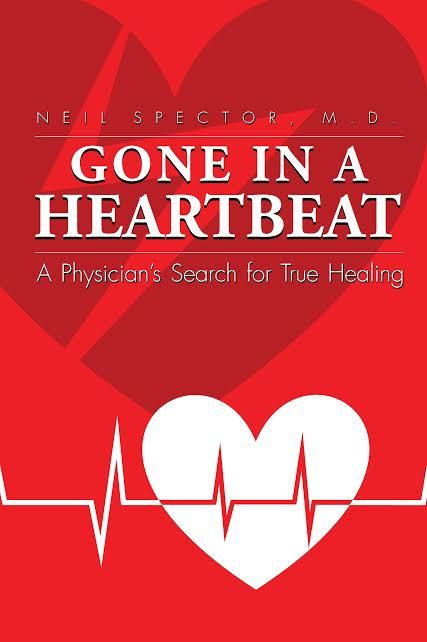After a harrowing near-death experience, Duke physician Neil Spector is using his story to help patients become better advocates for their health.

In his new book, "Gone in a Heartbeat: A Physician's Search for True Healing," Spector, an associate professor of medicine, recounts his terrifying sixteen-year struggle with heart failure—one that has given him a greater understanding and a new outlook on medicine. Spector said he hopes to use his experience—both as a renowned doctor and as a gravely ill patient—to help patients become better advocates for their own health and to inspire doctors to reevaluate their current practices. He encouraged patients to trust their instincts and raise any potential concerns they have about the medical advice they are given.
“Just because someone has a white coat and a diploma from Harvard doesn’t mean they know your body,” Spector said. “If your gut instinct is that they’re wrong, you need to get a second opinion.”
Spector's story began in 1993, when he began experiencing a series of symptoms out of the blue—transient episodes of rapid heart rate, “brain fog” and diffuse muscle aches.
Frequent trips to the hospital did little good, Spector said, because for four years doctors kept diagnosing him with stress, which he felt could not explain the magnitude of his symptoms.
Doctors often chalk people’s symptoms up to things like stress when they’re unwilling to acknowledge that they don’t have an answer, he added. After his experience, he wants doctors to be more willing to acknowledge their shortcomings.
“Ultimately, a lot of doctors think they have to give an answer right away because somebody views them as the omnipotent doctor on a pedestal,” Spector said. “The worst thing you can do as a doctor is be disingenuous.”

In 1997, his symptoms worsened, and he was eventually diagnosed with ventricular tachycardia. His doctors recommended a pacemaker, but Spector was certain that he had contracted lyme disease and instead requested a blood test. When the test came back negative, however, Spector had the pacemaker inserted.As his symptoms persisted, Spector said he was skeptical of the test results and continued to insist that he be re-tested. Eventually his test came back positive, a result that he said highlighted the importance of patient self-advocacy.
By that point, even the proper treatment could not correct the damage that had already been done to his heart, Spector said. After moving to North Carolina in 1998, he was found to have 10 percent heart function, which he lived with until 2009.
“With 10 percent heart function, I developed two cancer drugs, worked every day, coached my daughter’s soccer team and traveled the world,” Spector said. “No one really knew how sick I was or how at any moment I could just drop dead.”
In 2009, Spector contracted an infection near his heart that caused his blood pressure to drop to dangerously low levels, to the point where his doctors were unsure he would live much longer.
“That was sort of the last straw,” Spector said. “I developed florid heart failure. My heart was failing, my kidneys were failing, my liver was failing. It got to the point where I thought about ending it all.”
But within 36 hours of being put on the heart transplant list, Spector was lucky enough to find a donor.
“As soon as I was awake, I remember ringing the bell for the nurses because I thought something was wrong, something was pounding in my chest,” Spector described. “They kept saying that’s a normal heart beating. I hadn’t felt a normal heartbeat in 16 years.”
Going through this ordeal reaffirmed the sense of accountability and empathy Spector said he feels for his patients.
“I’ve promised to call people on Friday, but then Friday comes around and it's nine in the evening and I’m thinking that they obviously know that everything’s okay because otherwise I would have called them,” Spector said. “They’re probably freaking out, just like I was when I didn’t get a call about a heart biopsy I had.”
After living through the patient experience, Spector feels that perhaps the single most important thing missing in medicine today is the personal connection between doctors and their patients.
“There’s so little time spent between a doctor and a patient that you’re lucky to get five minutes with the doctor, and half the time they’re looking at a computer monitor,” Spector said. “There has to be a dialogue, and not just a dialogue where the patient talks and the doctor isn’t listening. Healing is a two-way street.”
Get The Chronicle straight to your inbox
Signup for our weekly newsletter. Cancel at any time.
